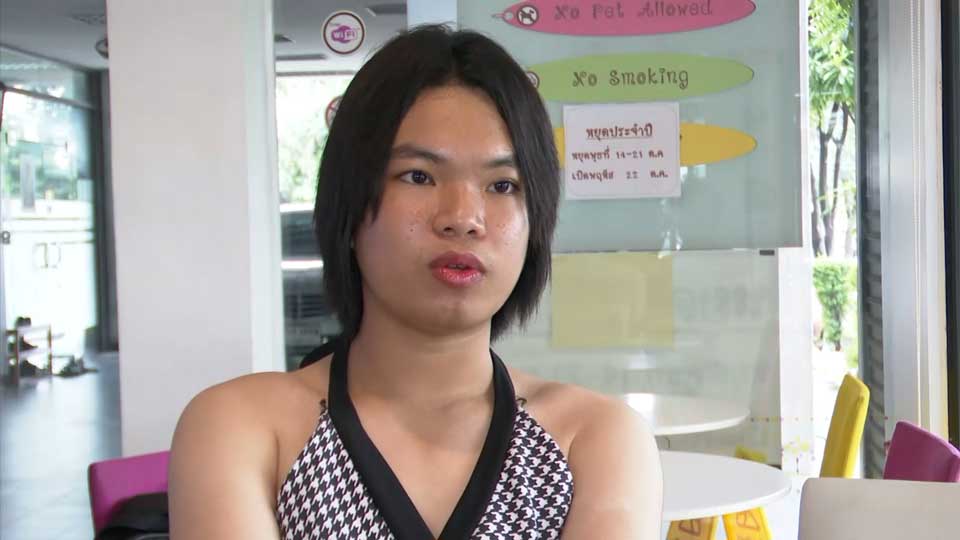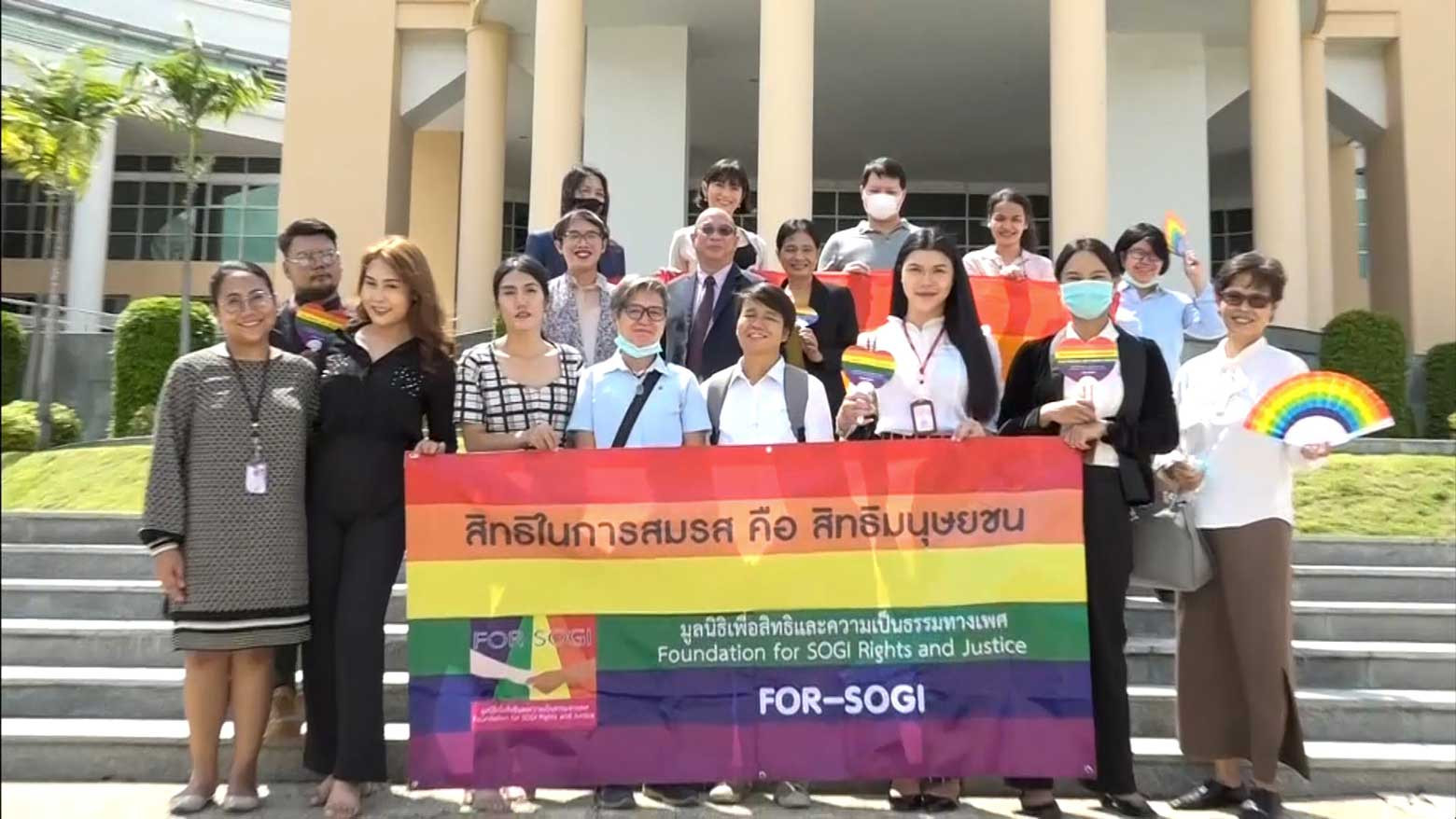"It's not equal at all," says a 15-year-old LGBTQ high-school student, who asked to be referred to by her nickname, Jessiefly. She says her difficult experiences as a sexual minority in Thai society spurred her to join the protests.
Jessiefly says she was forced to wear male clothes growing up. Teachers often told her, "You should dress according to the gender on your ID card." She was forced to cut her hair short, which she says hurt her self-esteem and confidence.
She says it is practically unimaginable to disobey teachers in Thailand, where respect for authority figures is deeply ingrained into society. She says she would almost certainly have been punished if she had worn feminine clothes and grown her hair long.

Breaking point
But one year, Jessiefly decided she'd had enough. She grew her hair over a school vacation, convinced that this would boost her confidence and allow her to feel like her true self. But when she returned to school, she was told her long hair was a breach of rules. She was given daily detentions and threatened with suspension.
"I don't understand why it is so wrong to want to express myself," Jessiefly says.
This July, she started a campaign calling for a change in hairstyle rules. She wrote to the ministry of education and took part in a rally there with fellow LGBTQ students. It was called the first "student pride" march in the country.
Jessiefly later joined another large protest in front of the ministry to call for student rights in general, especially for LGBTQ students. She knows it will take time to bring about change but hopes that what she is doing will make people like her feel less alone.
One step closer to equality
LGBTQ rights made headlines in Thailand this year when the government announced the prospect of enacting a same-sex partnership bill that would, among other things, allow sexual minorities to adopt children and give them property rights. Some hailed the move as a major step toward gender equality in the country.
But others have expressed doubts over how much a partnership bill would actually benefit LGBTQ people. Naiyana Supapung, an advisor at the Foundation for SOGI Rights and Justice, an LGBTQ rights advocacy group, says partnership is a new concept that isn't enshrined in other laws, while marriage is a well-established legal concept in Thailand.
The partnership bill will be applied to existing family law. But Naiyana fears the creation of a what is effectively a new category of family may lead to sexual minorities being excluded on some issues. For example, naturalization rights and social security benefits for partners are not explicitly stated in the partnership bill.
"This bill will only legalize inequality," Naiyana says.
Adjust existing family law
The Foundation says that instead of creating a totally new law, it would be more practical to modify the definition of marriage in the existing family law from "between a male and a female" to "between individuals." This would help ensure that LGBTQ people are not subject to discrimination stemming from confusion about the application of a new partnership law.
The Foundation is currently helping a same-sex couple sue the state to amend the family law. Phuangphetr Hengkham and Permsup Saiaung were galvanized to join the struggle for LGBTQ rights after a harrowing experience six years ago.

Phuangphetr was injured in a motorcycle accident and needed consent from a family member to get immediate surgery. But when Permsup showed up at the hospital, the staff said she wasn't allowed to give permission.
"I don't understand why I couldn't take care of my partner," says Permsup. "We have been living together for years. We are normal people, just like anybody else."
Fortunately, Phuangphetr's mother was able to provide consent and she survived. But the couple learned firsthand about the often life-threatening danger posed by systemic inequality.
Toward equal marriage
For the couple, the pending partnership bill only serves as a reminder of their painful experience.
"The bill will make us second-class citizens," the couple says. "It's not giving us the rights we deserve."
They say their goal is to achieve equal marriage through an amendment to the family law.
Although they live 800 kilometers away from the capital, Phuangphetr and Permsup have not missed a single court date. They see their fight as crucial to achieving equality in Thai society. Whatever the result, they say they will not be discouraged and will keep fighting until their goal is achieved.

